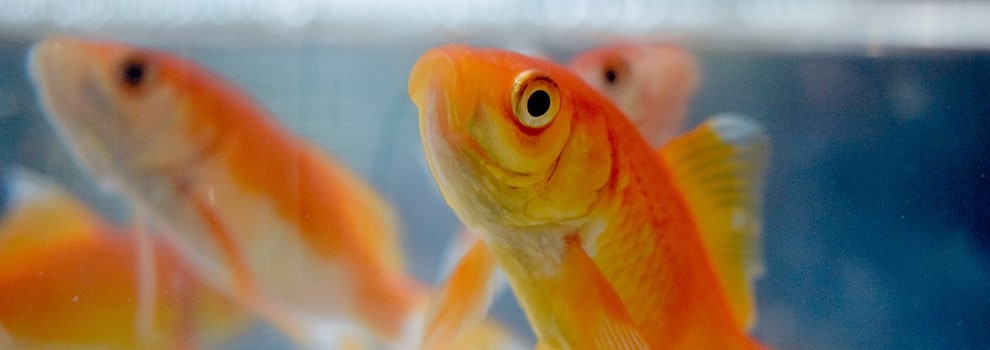- Find a Pet
- Advice and Welfare
- Ways to Give
- Get Involved
- What We Do
- Search
- My RSPCA
- Report a concern
- Gift in Wills
-
Colour modeVivid Calm
What to feed your pet fish
Fish need feeding regularly but what to feed them and how much is important to their health and welfare.

A well-balanced diet for pet fish
You need to buy the right type of food for your fish. For example, don't buy your goldfish tropical fish flakes. This is because they contain different levels of nutrients.
It's also important to supplement fish food flakes with other foods for balanced nutrition and enrichment.
For example:
- Goldfish love chopped vegetables such as peas and spinach.
- Tropical fish vary in what they'll eat. You could try frozen (fully thawed first) fish, crumbled boiled egg yolk and some lettuce leaf depending on the species.
- Certain species of pleco need vegetables, such as potatoes, or pieces of wood that they graze on.
- Water fleas (daphnia) or brine shrimps, are an excellent supplement for tropical fish and are widely available in frozen packs. Only feed small amounts of them to goldfish due to their high protein content.
Different tropical fish species may need their food given to them in different ways. Middle and bottom-dwelling species will need their food in quickly sinking food or compressed food 'tablets'. Nocturnal species, like some catfish, need to be fed last thing at night.
How much to feed your fish
- Build a feeding routine for your pet fish.
- Adjust the quantity of food according to the size and quantity of fish in your tank.
- Always feed as much as the fish can eat within two to five minutes
- Don't overfeed them.
We recommend feeding fish two or three times a day rather than just once a day. Fish will learn the routine, if you usually feed them around 7am, 12pm and 6pm every day, you'll find them waiting for you at those times!
Holiday care for your fish
If you go away on holiday, ask a responsible person to check on the fish and equipment each day.
Remember:
- Tropical fish will need daily feeding
- Leave instructions on how to feed and avoid overfeeding
- Prepare some meals in advance
- An automatic feeder will release a measured amount of food each day. This still needs to be checked every day to ensure it's working correctly.
We don't recommend using holiday 'feeding blocks', as they release a lot of food into the water very quickly and most of it may rot.
Remember it's actually better to underfeed rather than overfeed because fish are more susceptible to poor water quality than a lack of food.
Stay in touch
Sign up to receive our emails today. Get more pet care advice, hints and tips on helping wildlife, our latest news, rehoming success stories and more directly to your inbox.



